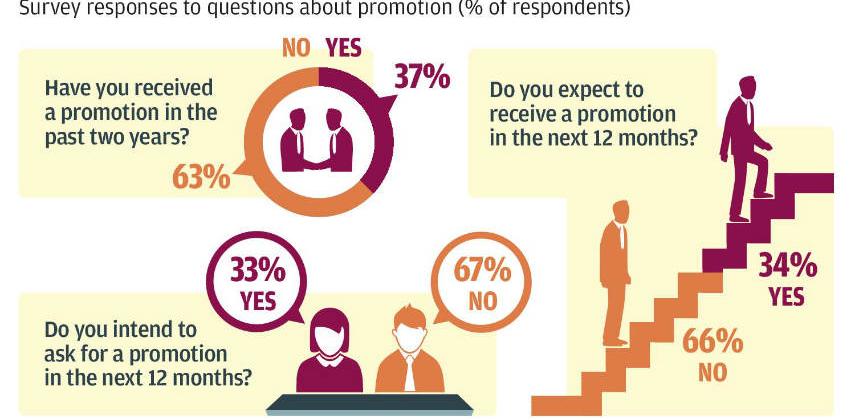A lack of promotion opportunities is one factor driving what looks to be an exceptionally busy year ahead for recruitment, according to the 2014/15 Michael Page Employee Intentions Hong Kong Report.
Responses suggest most businesses see positive signs of growth and are planning to bring in the talent needed to sustain recent progress and push into new areas. Picking up on this, employees are significantly more optimistic about job prospects and salary increases, though some do still remain relatively cautious when it comes to finding a new role with a different company.
“We have been seeing consistently stable recruitment activity, which is likely to be sustained through the next 12 months,” says Andy Bentote, senior managing director of PageGroup for Hong Kong and Southern China. “As a result, jobseekers and employees continue to display confidence in the local market, which remains very good compared to other parts of the world, with new companies coming in and most sectors doing fine.”
The report, which collated feedback from roughly 1,500 online replies, found that 55 per cent of respondents indicated they were likely or very likely to change roles in the next 12 months. The figure for professionals in the digital sector was particularly high, with 75 per cent saying they plan to get a new job in the time frame mentioned.
Behind this, no doubt, is the fact that 63 per cent of all respondents had not received a substantive promotion in the past two years, while 66 per cent indicated they did not expect to receive one within the next 12 months.
Meanwhile, close to half stated that working hours had increased in the past couple of years, sometimes significantly and often because of business growth.
And – perhaps not surprisingly – the prospect of a better salary was the top motivating factor (40 per cent) in actually looking for a new job, rather than holding on and hoping things will improve, like 26 per cent of respondents.
Intentions aside, Bentote highlights several other factors now evident the local job market. Firstly, there is strong demand for people with the skills to fill digital and social media positions, especially those who combine marketing and technical know-how. Finding enough good candidates is quite a challenge.
Next, companies are continuing to hire for a broad spectrum of sales, commercial, marketing and retail positions. Thirdly, the perceived need to improve staff engagement and limit turnover has led to noticeably more investment in HR and learning and development roles, as well as in jobs linked to building a company’s EVP (employer value proposition) and strengthening the brand.
“Overall, for graduates and up, there are good jobs out there and a really strong candidate could probably have three or four offers on the table,” Bentote says. “However, a key thing is that hiring standards are still high – employers don’t really want people who are only 70-80 per cent right for a role – and candidates have to be able to deliver.”
However, expectations about promotion prospects should be realistic. Much depends on the sector and the role, but at the more senior levels in a relatively stable discipline like finance, advancement every four to five years could be the norm.
In a fast-growing sector such as digital and for high-flyers elsewhere, moves every two to three years are still possible.
“With a good, rather than a great, economy, companies are becoming more stringent about promotion criteria,” Bentote says. “In theory, it is becoming harder to be successful and employers need to be certain a candidate is capable [of handling a more senior role].
“Assuming staff turnover rates are not too high, a business can only offer regular promotions if they are growing and creating new opportunities. Otherwise, you are just waiting for someone to leave.”
In seeking a promotion, timing can also be critical. Sometimes, it is just better to keep your head down and focus on doing a good job rather than asking or agitating for a move.
Consistently strong performance over a sustained period is the best basis for making one’s case. “Individuals seeking promotion should be prepared to outline what they can bring to the new role and how the company could benefit,” Bentote says. “At the same time, they should be ready for some direct feedback if their boss disagrees.”
He notes too that, while companies have clearly stepped up their efforts and investment in talent retention, the results appear fairly hit and miss. In fact, 62 per cent of respondents said they felt employers had not made enough progress in matters of talent retention.
Admittedly, more time and energy is now being spent on the EVP area to develop corporate culture and career paths, but creating a more engaged workforce has to be seen as a long-term project.
“Broadly speaking, companies are getting better at this and are doing the things needed to get there,” Bentote says. “For example, they are allowing more flexibility with hours and working from home. But changes like this have been comparatively slow to take off in Hong Kong.
“Generally, cash is still king and the financial rewards have to be right, before anything else, if the employer really wants someone to stay.


